Fashion
Shorts-Pants Combo
The latest example of weird denim: these "Reworked Demi-Denims with Transparent Legs" from designer Ksenia Schnaider. Going for $395.I'm not even entirely sure what's going on with these things. It's like an attempt to combine shorts and pants into one garment. Shorts from the front, and pants from the back. But why?

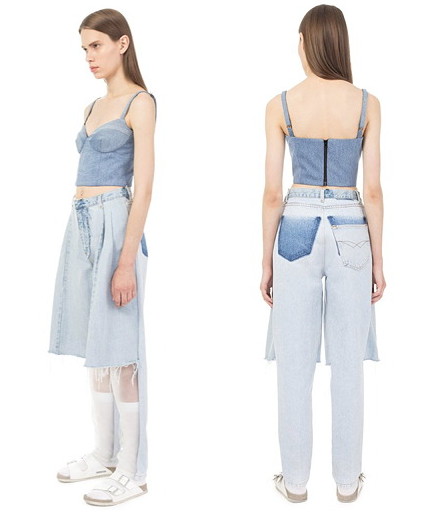
Posted By: Alex - Sat Feb 23, 2019 -
Comments (4)
Category: Fashion, Denim
Inside-Out Jeans
Back in 2018, I posted about upside-down jeans sold by CIE Denim. This inspired Phideaux to comment: "I guess the next thing is to have them look like they're inside out, as if you got dressed in the dark."Phideaux's guess is apparently the fashion industry's command, because retailer boohoo.com is now offering inside-out jeans for £15.
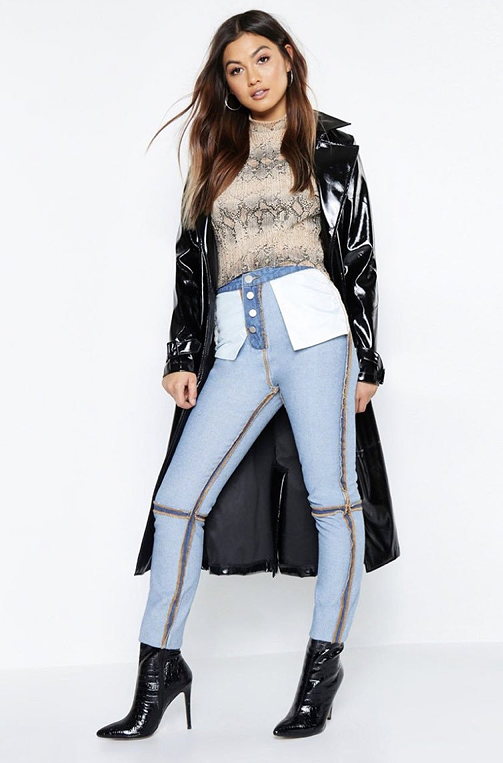
Posted By: Alex - Tue Feb 12, 2019 -
Comments (7)
Category: Fashion, Denim
Unicorn Armpit Hair
It's being hailed as the latest beauty trend. All you have to do is dye your pits the colors of the rainbow. Details here.This must somehow be related to the unicorn food phenomenon we posted about back in 2017.
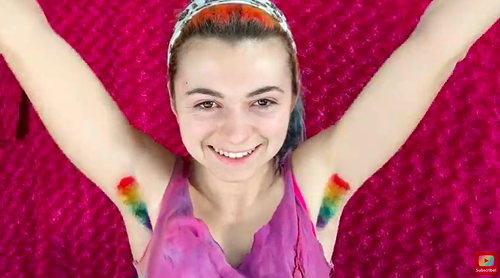
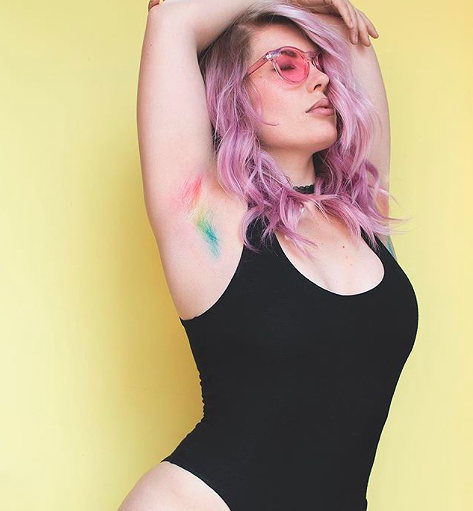
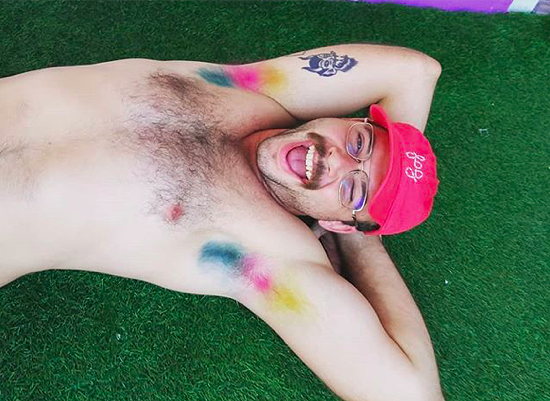
Posted By: Alex - Sun Feb 10, 2019 -
Comments (6)
Category: Fads, Fashion, Hair and Hairstyling
Follies of the Madmen #411
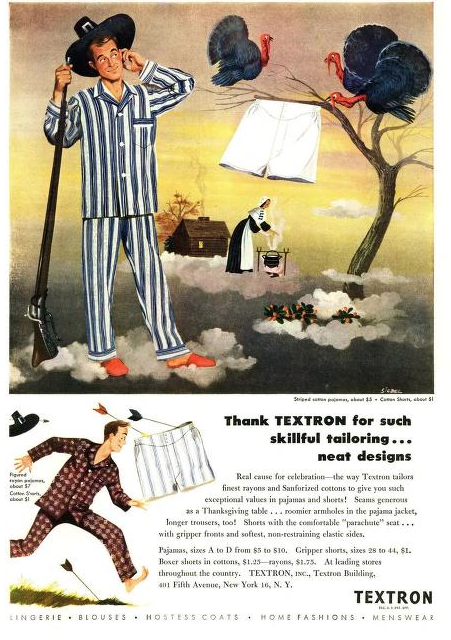
Surreal pajama ad from armaments manufacturer.
Source.
Posted By: Paul - Thu Feb 07, 2019 -
Comments (5)
Category: Business, Advertising, Fashion, Surrealism, 1940s
Bras for Cows
Apparently, they exist. Farm Show magazine explains:

Long Beach Independent Press-Telegram - July 2, 1977
Posted By: Alex - Wed Jan 30, 2019 -
Comments (2)
Category: Fashion, Underwear, Cows
Rail-Delay Scarf
Knitted by Claudia Weber of Germany to visually represent the delays she experienced each day, for one year, on her rail commute between Moosburg and Munich.Weber put the scarf for sale on eBay where it was bought for €7,550 by the German railway company Deutsche Bahn.
More details: euronews
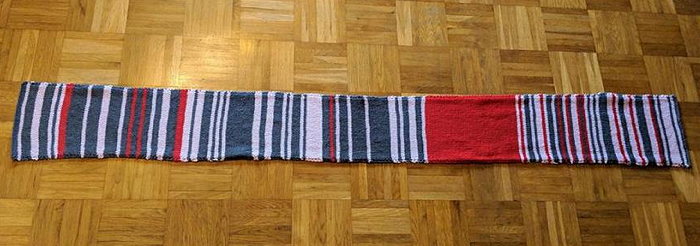
Posted By: Alex - Fri Jan 25, 2019 -
Comments (6)
Category: Fashion, Trains and Other Vehicles on Rails
The Techno-Bra
Created by Kursty Groves. The bra monitored the wearer’s heartbeat and contacted the police if there was a sudden change indicative of a panic response (suggesting that the wearer was being attacked or in danger). The bra was reportedly going to be manufactured and sold by the British design firm PDD, but as far as I can tell, it never made it to market.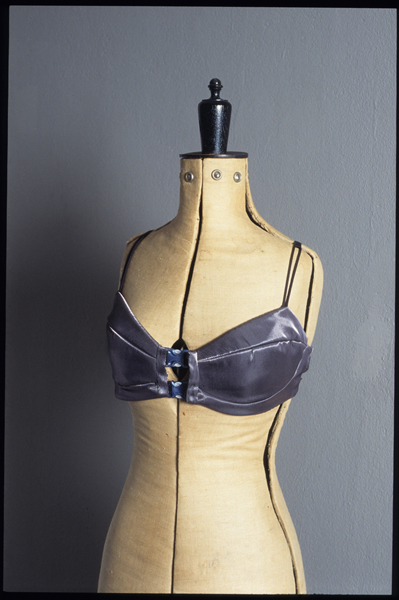
Image source: Visual Arts Data Service
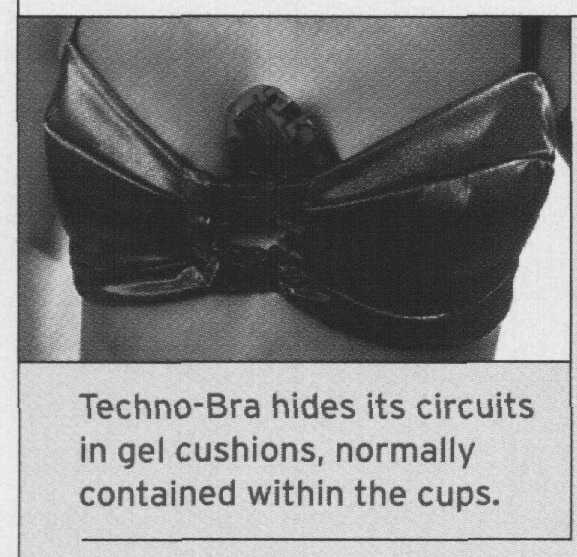
Discover magazine - October 1999
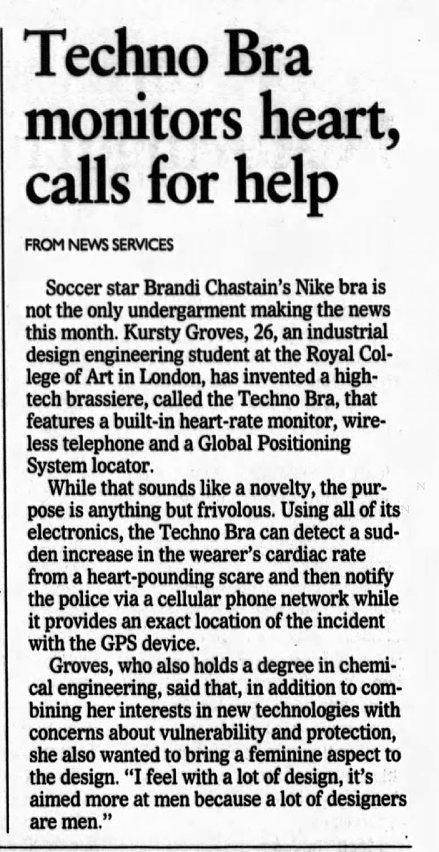
Atlanta Constitution - July 25, 1999
Posted By: Alex - Tue Jan 22, 2019 -
Comments (8)
Category: Fashion, Underwear, 1990s
Asymmetrical Jeans
Vogue asks whether asymmetrical jeans are the next big trend in denim. What do you think?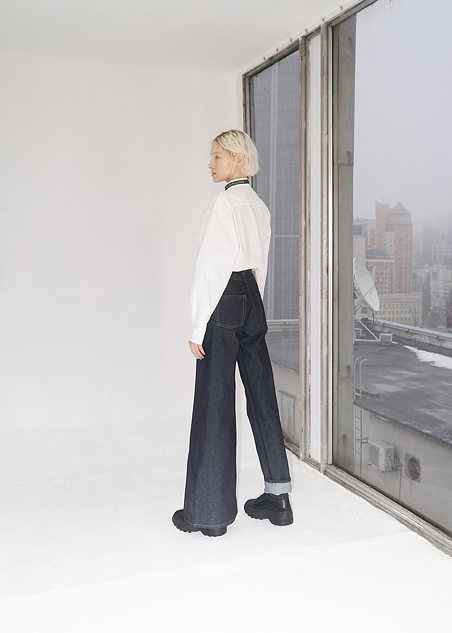
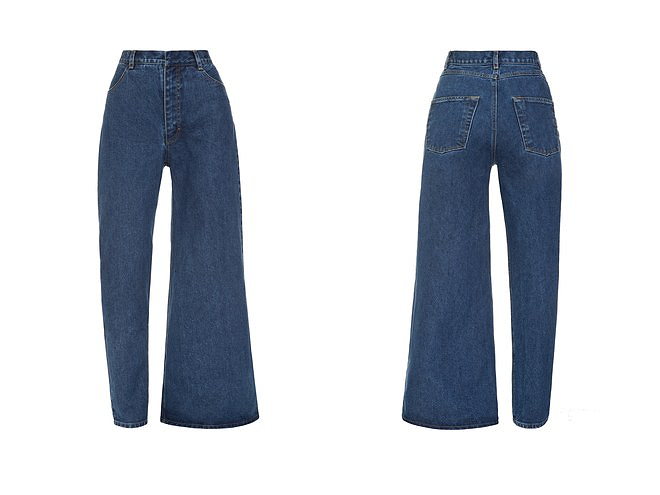
Posted By: Alex - Sun Jan 13, 2019 -
Comments (8)
Category: Fashion, Denim
Cut Out Styles
The trendy new thing is to look like your clothes are falling apart. "Cut out" styles below are from Carmar Denim. They seem similar in spirit to the Thong Jeans we posted about back in 2017.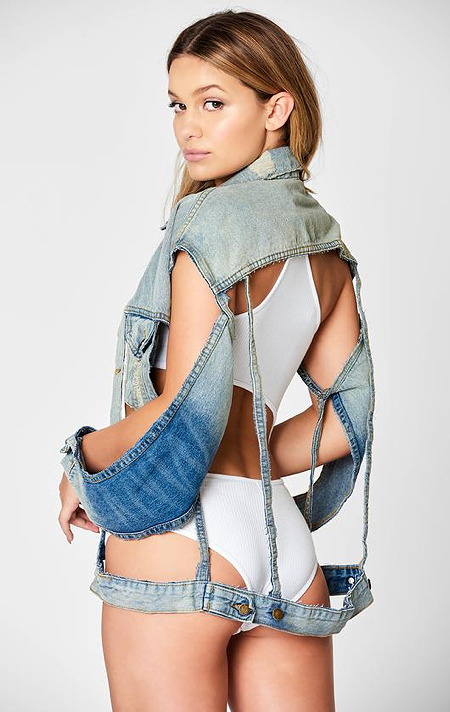
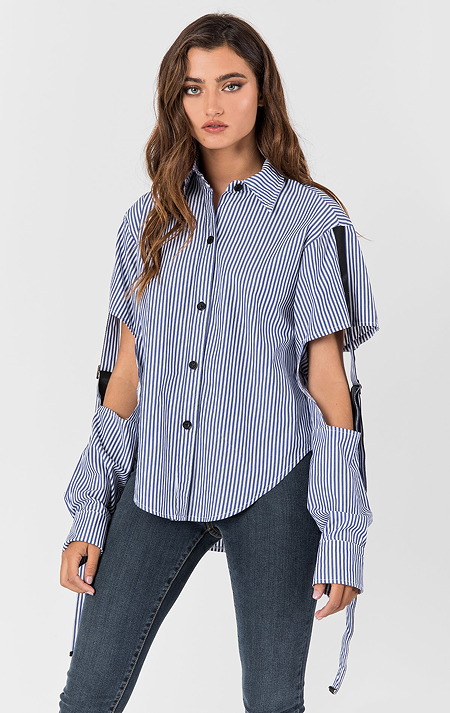
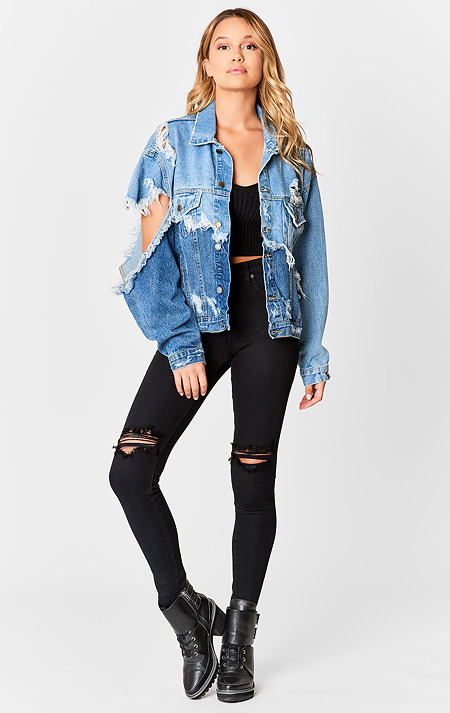
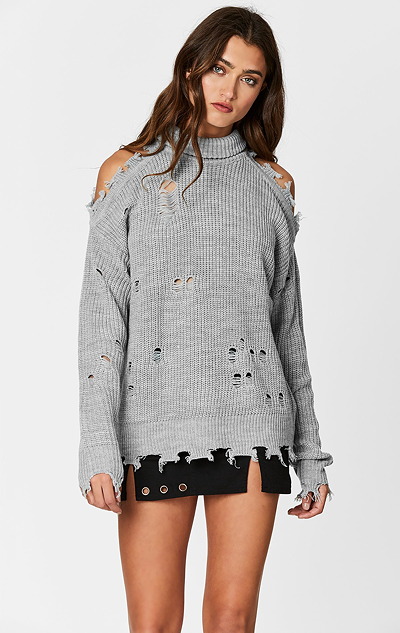
Posted By: Alex - Thu Jan 03, 2019 -
Comments (5)
Category: Fashion
Fashion predictions for 2019 - from 1969
Back in 1969, fashion designer Bonnie Cashin offered both a pessimistic and optimistic prediction for how people would be dressing in 2019. I'm guessing her illustration is supposed to show the optimistic one.The pessimistic prediction:
Then each of us may have to wear an environmental covering just to survive. This would be a kind of life-preserving incubator which we would be put into at birth, never to leave. This would serve as an individual habitat. There might be no private homes as we know them. Communities of people would be "stored" for sleeping in giant, multi-level containers, probably according to income level.
In this gear, perhaps called an "environmode," there would be an oxygen system, a speaker system and other devices to maintain bodily functions and self-protection. It would be made of some still-to-be-invented material which articulates with movements of the body. It would have to be close-fitting, but it might be very light and transparent. Underneath would be worn a second-skin garment. In this, the individual might be able to express some personal taste in the choice of color and texture.
The fashion market as we know it would become extinct. A market for new kinds of accessories would come into being, individuality being possible in headgear, oxygen bag, the kind of ray gun you carry and such.
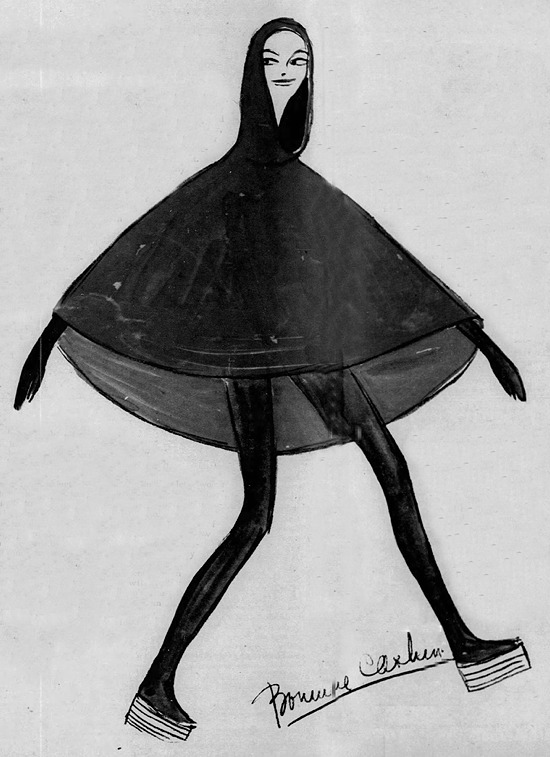
New York Sunday News, Coloroto Magazine - Sep 7, 1969
The optimistic one:
The young will no longer need to look at the world through a rear-view mirror, dressing as Edwardians or gypsies or biblical characters to make their point. They will be too busy planning ahead. They will look at their bodies with pride, conducting themselves with grace.
The "in" four-letter words might be "work" and "give." And "love," in the most delightful sense. I see young people of a half century from now looking absolutely marvelous, because they reflect the great environment in which they will live. Fashion's role will be as an adjunct to the fully involved life, not a fad, not a relief from boredom or a comic relief. And not just big business.
The future look is clean, unencumbered, free and much more individual in the pure sense than fashion is today — almost, you might say, non-fashion. I see color a much greater dimension than it is now, the head-to-toe effect composed, somewhat, as a walking collage. People will be educated to this, and each person will, in a sense, be able to design himself. Cosmetics will play a large role, not so much as facial adornment but as body insulation or chemistry to protect from extreme cold or heat. This, along with actual weather control, will cancel out the need for heavy clothing and furs. Fabrics and substances yet unborn will employ technology to a creative extent that we have not yet seen. There will be more un-cut-up "dressmaking" techniques used, but the word dressmaker may well be almost extinct. The dart, the seam, the hem, the detail fittings will go into the Brooklyn Museum Design Laboratory archives, along with the obsolete government charts of sizes used in our clothing industry today. Everything will be sized small, medium and tall (not large, because obesity will be a sin). Practically all clothing will be laminated, fused, molded or knitted into shape without sewing. Another technique will be a return to simple draping and tieing — a concept still used in some "developing" countries.
I think, too, that the "layered" concept, which has long been an involvement of mine, will continue in new applications. For instance, six very thin layers of a new substances, each permeated with certain chemical coverings, could be peeled off or donned as the need requires, much like an onion. This is the concept, I think, from which space-travel clothing will evolve, and that evolution should come before 2019.
Posted By: Alex - Tue Jan 01, 2019 -
Comments (4)
Category: Fashion, Predictions, Yesterday’s Tomorrows, 1960s

| Who We Are |
|---|
| Alex Boese Alex is the creator and curator of the Museum of Hoaxes. He's also the author of various weird, non-fiction, science-themed books such as Elephants on Acid and Psychedelic Apes. Paul Di Filippo Paul has been paid to put weird ideas into fictional form for over thirty years, in his career as a noted science fiction writer. He has recently begun blogging on many curious topics with three fellow writers at The Inferior 4+1. Contact Us |




